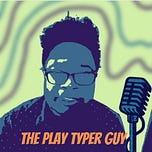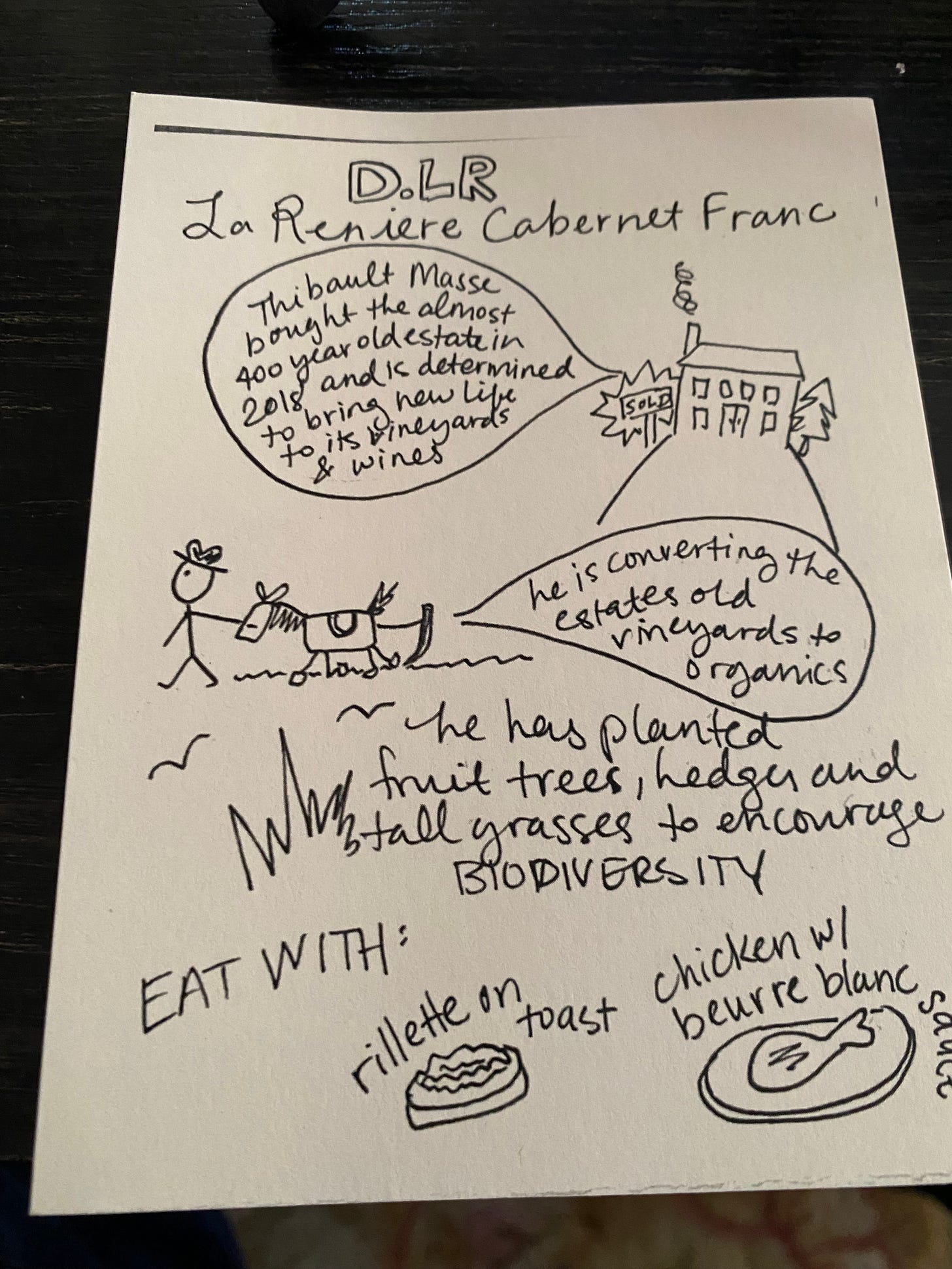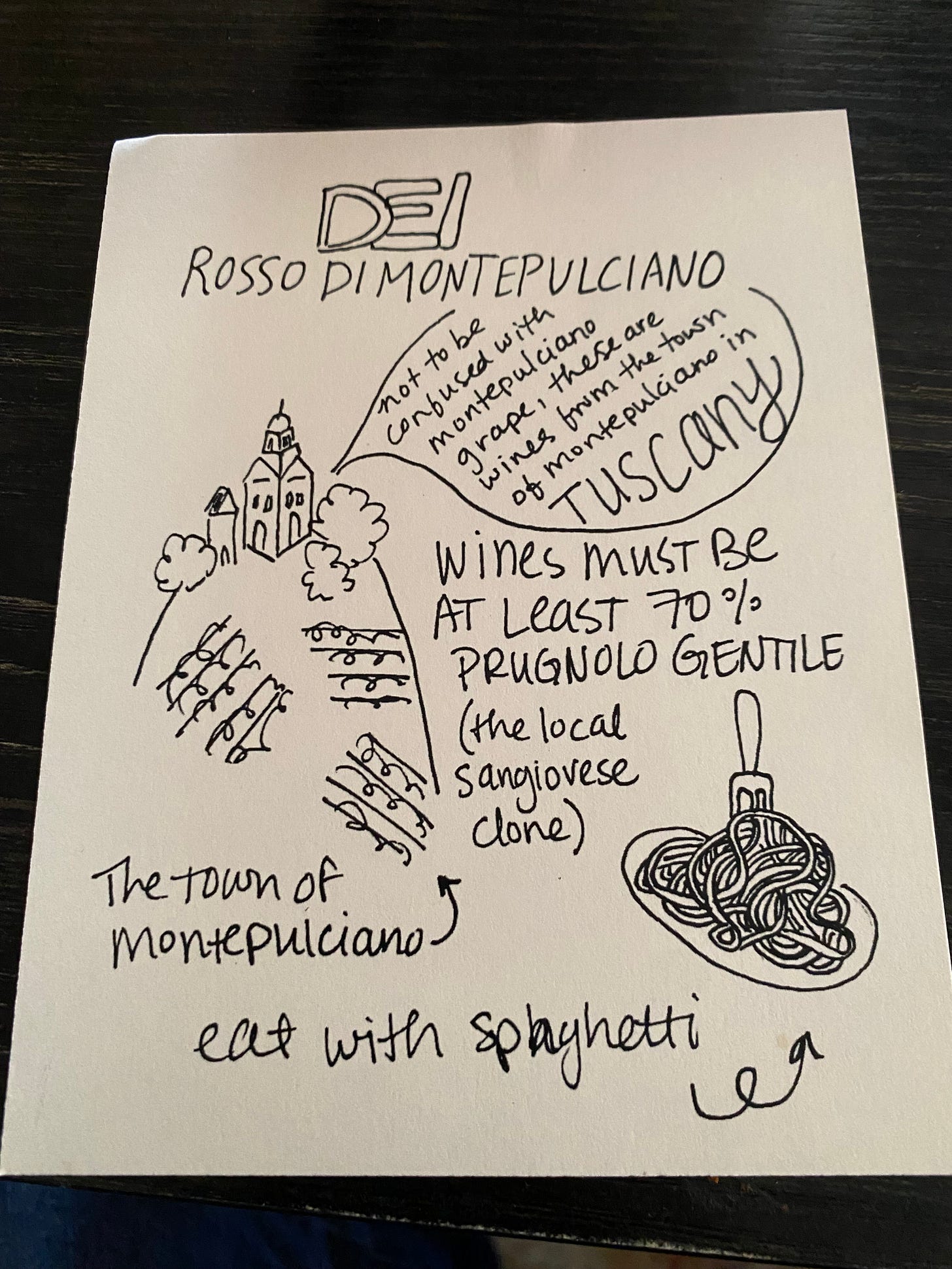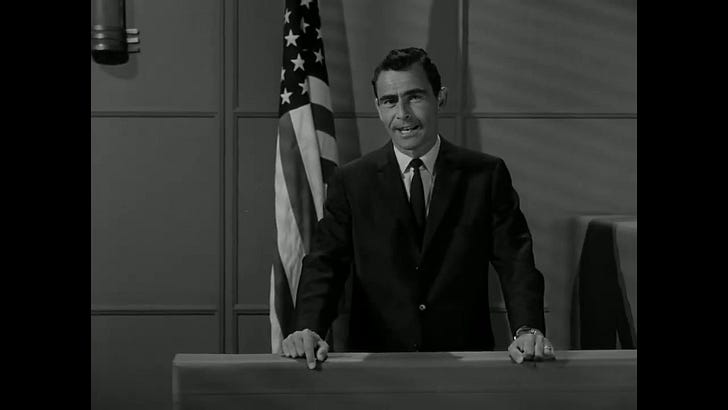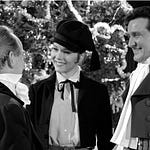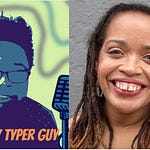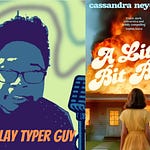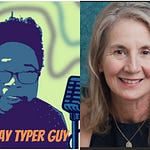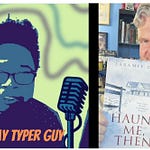I need to take a break from natural disasters and political mayhem. I’m calling an early weekend and cheering myself up with something a little lighter. Today’s newsletter is an interview with Mallory Smith, co-founder of Sunday School Wine and Alt Wine Fest in Oregon.
Download the podcast above or watch the YouTube version below. Don’t forget to please like, share, and subscribe. I’ll return next week with my usual cranky content. Thanks for bearing with me on my mental health day.
Transcribed excerpts from our conversation:
SER: You are responsible for one of my favorite wine clubs in the world, of all time. I belong to many. My wife will tell you I’m an easy mark when I visit a winery. I come away thinking, “This is the best wine ever!” And I want to recreate this wonderful experience at home, so I get all this wine shipped to me, and it doesn’t quite replicate the experience that I had. What I appreciate so much about yours is the diversity and the accessibility. This ranges the price point, but also the way you discuss wine. Can you speak a bit about how you got into the business and what drives that philosophy?
MALLORY SMITH: I was in college, and I was going to a beer and wine only bar in the L.A. area. My friend and I went multiple times a week because it was in between our houses. I was annoyed because I didn’t like wine and I didn’t like beer either.
The owner there was really excited to get me to like something. He’d say, “Let me try to pour you this. And how about this?” And I’d say, “Oh just pour me whatever. I don’t ever care. I’ll just plug my nose, whatever.”
He would compare wines to cars or movies and attempt to figure out what I would like. I just thought he was just trying way too hard. It was an entire summer. I don’t even remember exactly the flow of how it happened, but eventually just something clicked, and I thought, “Wow, wine is really interesting. It actually normally doesn’t taste better than I thought it would. But it’s all so different from each other.”
This wine from Argentina, wine tasted different from different places. I never thought about wine as this concept. I thought it was just some weird, some fancy alcoholic beverage, but it became this cerebral thing for me.
Then I got a job at a winery. I don’t know why they hired me cause I didn’t know anything. I went back to this guy and [told him] I have a job at a winery. Now, can you like teach me what to say and what to do? I don’t know anything. I have no idea what I'm doing. That’s when he pulled out all of these books … He just talked to me like a normal person this whole time, without being pretentious. And so that was my introduction into wine.
I worked at this winery, asked the people there millions of questions, learned tons of stuff, moved to Portland [Oregon], took wine courses, and everyone was so boring. I thought I was going to make friends. I just moved to a new city. I’ll take wine classes. I’ll make new friends. No, they were … “I’m just here for work. Don’t talk to me.” And I was so sad.
Wine is so beautiful and so fascinating. I was introduced to it from that direction. Now that I’m in it, I’m realizing how the world of wine is so … there’s so much knowledge that’s like not only gatekept from people, but also just framed in this way that’s just flat. People are bored by it and they’re not giving it the passion and the kind of light that it actually has.
That’s when the experience that I had at that bar, really in hindsight, I [realized] that was an incredible experience, and that was kind of the inspiration for everything that I do now.
That’s why I love wine, because it’s a story. It’s a story of place. It’s a way to travel without actually traveling. It’s a way to learn about other cultures. It’s a way to learn about history it’s a way to learn about all these other disciplines at the same time and that’s what I love about it. I love translating that and communicating that to people
Sunday School Wine
MALLORY: [My partner Martin Skegg and I] want people who take our classes to be able to go to a wine shop and know what questions to ask and how to navigate wine without having to say, “We just tasted these five wines at a class. And do you have these five wines? Oh, you don’t?OK, well, now I’m lost.” And I think that’s what happens oftentimes.
And that doesn’t really empower people either. That just gives people a bullet-point list. That’s not really an intuitive knowledge, like understanding wines from this region are going to taste generally like this because of this greater story, because the culture is like this, the history is like this, the weather, the climate is like this, and the geography is like this. So, it teaches you about this place and to fall in love with this place, which is why it’s a sense of travel, and history and culture. And then through that, you understand what the wines are like. You can look at a menu at a restaurant or go to a wine shop and think, “I have a general concept of what these wines from Alsace are because I know what that region is like. I know what the food is like. I know what the people are like. It gives you this confidence to be able to take that anywhere. And it’s beautiful. It’s like having traveled all over the world without having traveled much.
Alt Wine Fest
SER: You are very upfront that there will be no Pinot Noir served at this event. Can you tell us the story behind that decision?
MALLORY: Our story about it is it’s not anti-Pinot. Pinot is great. There’s a lot of great Pinot Noir here, but that doesn’t mean that it’s the only thing that can grow here and be amazing. There are 80 plus other great varieties that are being grown in Oregon and a lot of them are also really really good. I’m not saying the attention should be on all of them, but they’re dismissed too quickly because we think only Pinot Noir is good.
There are all these people making Pinot Noir, but Pinot Noir gets kind of old, especially if you live here and that’s all you’re drinking.
So when you’re going out and finding wine, what is the other side of that conversation? What are the other winemakers doing? Winemakers [in Oregon] even get bored of making Pinot Noir all the time. It’s a really like finicky grape to grow. Oftentimes, it’s a really formulaic wine to make.
You can’t be as creative with it as you can with other great varieties, so winemakers get really excited when we had [Alt Wine Fest], a festival where they can showcase all of the other things that they’re to make. What else is there? What else are people doing?
So we have food and we have food carts. Martin’s a DJ and he spends the entire year creating a playlist. The festival itself feels like you're not at a wine festival, and that’s something that I love about it and that people really appreciate about it.
Part of the accessibility is I want people to feel like they can drink wine, and it’s not snobby and they have to act a certain way or ask certain questions or drink wine in a specific type of way because they’re at this wine thing.
We partner with Scott Edwards, which is an architecture firm here in Portland, and they create an installation every year that’s just really fun and creates a unique atmosphere.
Learn more about Sunday School Wine and Alt Wine Fest.


